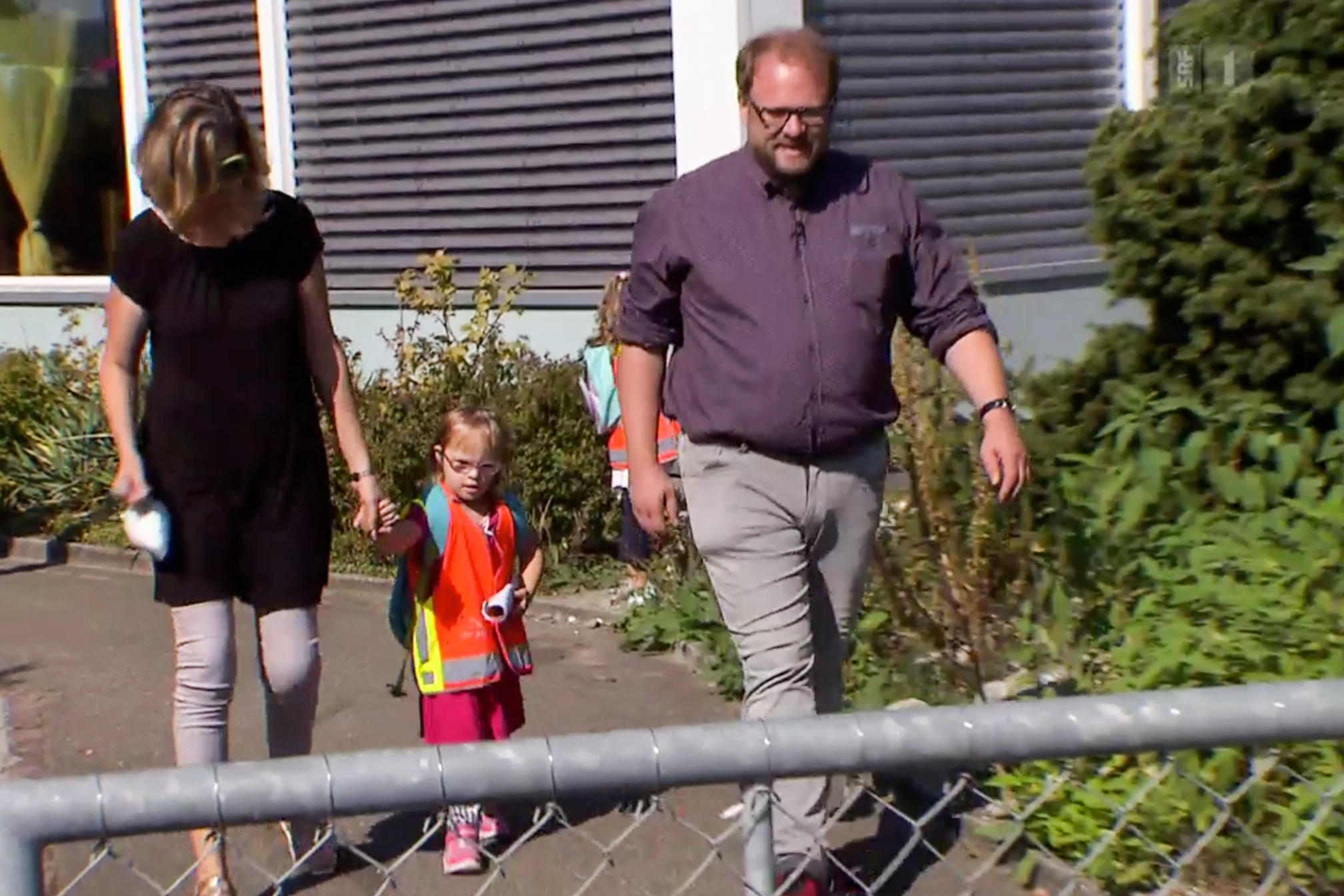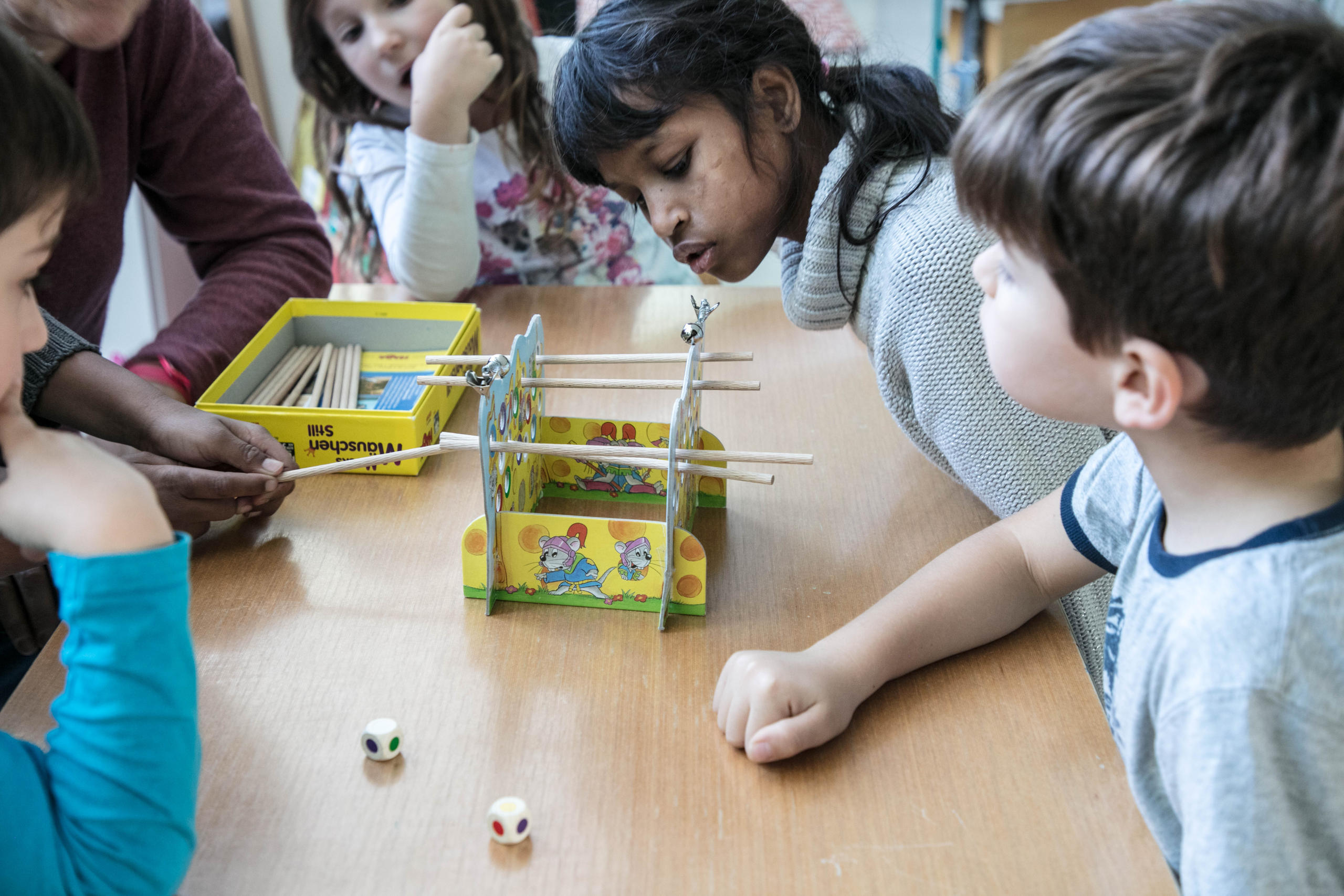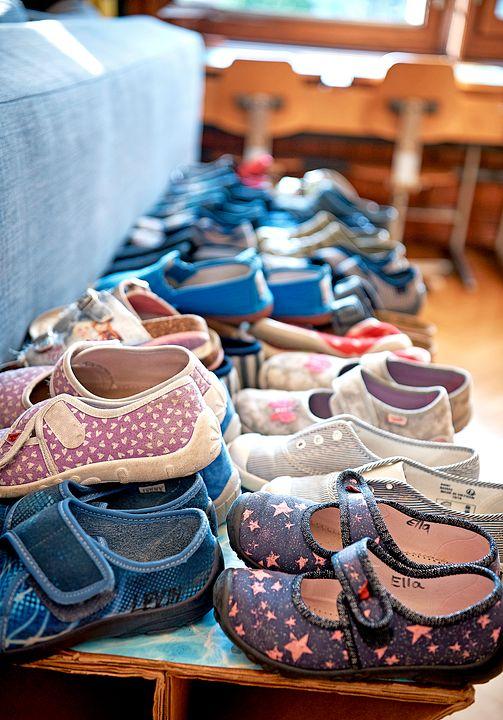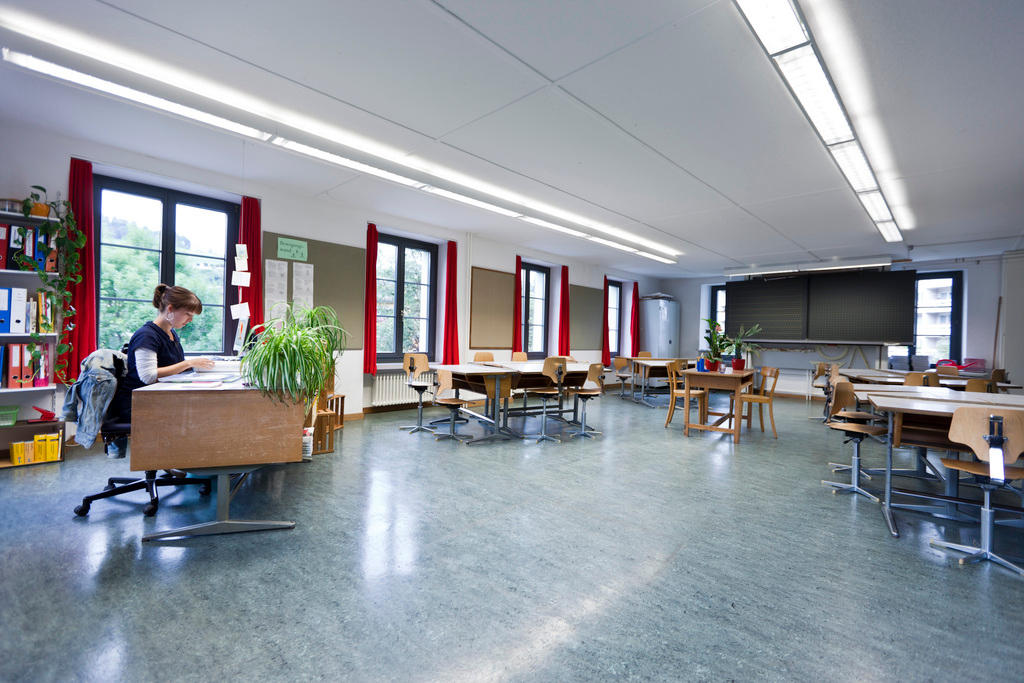Inclusive education proves a success

Many children with disabilities attend regular schools in Switzerland, but there are stark regional differences. But experts maintain inclusive education model is working well.
Carmen, aged 5, has Down’s Syndrome. She currently attends a regular kindergarten in Lenzburg, a town in canton Aargau west of Zurich, in the German-speaking part of Switzerland. But to get there, her parents consulted a lawyer because the Aargau authorities wanted to put her into a special needs school.
“It needed a lot of energy, determination and correspondence,” Carmen’s father, Eric Casanova, told Swiss public television SRFExternal link. “It’s pretty bad if in Switzerland you have to have a lawyer involved to get a child into a regular kindergarten five days a week.”
In canton Aargau, a higher percentage of school pupils – 4.6% – attend special needs schools or classes. The Swiss average is 3.4%, according to SRF, with the figures ranging from 1.2%-5.7% across Switzerland. In canton Lucerne, for example, it is 1.8%.
The SRF report featured a Lucerne primary school in which an 11-year-old girl with Down’s was integrated into a regular school class, with help of a special needs teacher.
Some critics of inclusive education maintain that the other pupils risk falling behind when children with disabilities are integrated into a regular class. But the special needs teacher in the report said that this was definitely not the case in this school.
Where you live
So the chance of a disabled child attending a regular school depends very much upon where you live in Switzerland. This is because education is overseen by the cantonsExternal link, and this includes special needs education. Each of the 26 cantons has its own, differing, law on the issue.
+ Read more about the differences in education of deaf pupils in Switzerland
This should not be the case, says Pascale BrudererExternal link, a senator and president of Inclusion HandicapExternal link, the umbrella organisation of disabled groups in Switzerland. “The Swiss ConstitutionExternal link, the Law Act on the Elimination of Discrimination against People with DisabilitiesExternal link and especially the UN Disability Rights ConventionExternal link, which applies to Switzerland, clearly point the way. There must be a freedom of choice.”
Children with disabilities must have the opportunity and the option of attending a regular school, she said. Bruderer calls on the cantons to take more action on the issue, especially the Swiss Conference of Cantonal Ministers of Education.External link
“The current figures available do not, for various reasons, permit a comparison between the cantons,” Silvia Steiner, the conference’s president, said in statement to SRF. This is why work is being undertaken with the Federal Statistics Office to generate new data, she added.
Success, but challenges too
For his part. Alex Hürzeler, head of educationExternal link at canton Aargau, defended the canton’s system. “If we can teach more than 95% as standard in a regular class, this is a very good figure,” he told SRF. It’s not about quotas, he continued, but in individual cases strengthening further what could be offered in regular schools, thus making it easier to bridge the gap between a special needs school and a regular school.
Barbara Fäh. Rector of the University of Applied Sciences of Special Needs EducationExternal link, said that the idea was to have as much integration as possible, but separation when needed. Schools have pupils of all kinds, including those with disabilities, the highly gifted and those who struggle with maths or reading or do not have German as a mother tongue. Key is the wellbeing and development of the child, she told SRF. This is why different solutions were needed.
It is a challenge for those involved to accommodate all these different needs in the classroom, she conceded. But teachers do have support, especially from special needs teachers. However, there are currently too few of these, she said. But schools reflect society and will continue to develop in terms of integration for all, Fäh added.
As for Carmen, how her schooling will continue after kindergarten is not yet clear. Inclusion is an issue that will accompany her for many years to come.

In compliance with the JTI standards
More: SWI swissinfo.ch certified by the Journalism Trust Initiative




You can find an overview of ongoing debates with our journalists here. Please join us!
If you want to start a conversation about a topic raised in this article or want to report factual errors, email us at english@swissinfo.ch.